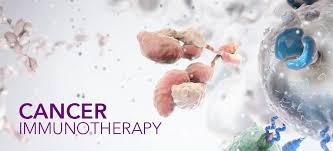In spite of the progress that has been made through cancer research, many forms of cancer are still thought of as the Big C. The diagnosis is still frightening and many lives are still being lost to this disease. One of the new treatments coming forth, thought to be the answer for some cancer patients, is immunotherapy. Immunotherapy is the process of boosting the body’s natural defenses to fight off the cancer. It is also called biologic therapy in some circles.
Natural substances made by the body or created in a laboratory, are used to strengthen the patient’s immune system and bring it back to its normal healthy functioning. Cancer patient, Judy Woodruff, one who has been treated with immunotherapy, has lived for years past her doctor’s prognosis because of this emerging medical treatment. Many physicians and researchers agree that for some, immunotherapy has its super powers but the new treatment also has its limitations.
What are its powers?
To help us understand a little about how immunotherapy works, let’s list some of the processes it puts into place inside the body:
- Slowing down or completely stopping the growth of cancer cells
- Strengthening the immune system so that it can assist in destroying cancer cells
- Keeping the cancer from spreading to other parts of the body
All very powerful processes. There are at least five well-known types of immunotherapy being used today, each one being shaped specifically to the type of cancer and to the specific patient. Just as with any successful treatment, there are disadvantages and limitations. One of the major challenges and limitations of all forms of immunotherapy, is that they are so specifically targeted towards certain cancer characteristics and certain types of patients. When treatments are this targeted, as long as it hits the right targets, it works successfully. If one target or requirement is missing or varies, the treatment is likely to fail. The treatment can also become ineffective as cancer cells change and mutate, because the targets or requirements for success are no longer there.
Research is still being done on immunotherapy and it has been the savior for some cancer patients who have gained years on their lives. Patients who were told that they only had 6 months to live after their diagnosis, have lived quite a few years past that prognosis due to immunotherapy. But this form of treatment does not work for everyone, not the masses, and it may never get to that type of success rate because it is so targeted and specific. However, the successes that have been garnered through immunotherapy treatments is enough for researchers and physicians to keep learning and moving forward.
photo credit: Cancer Research
